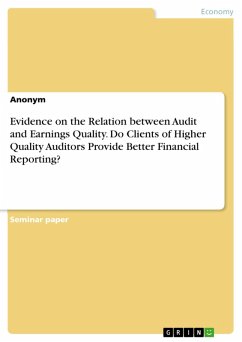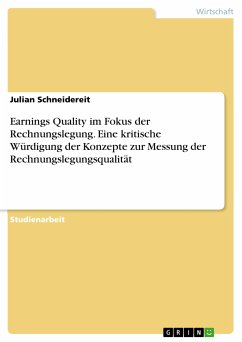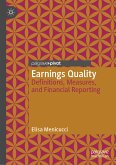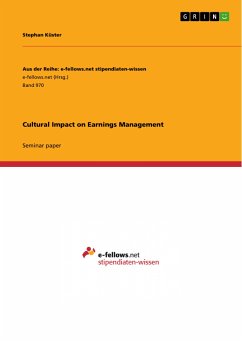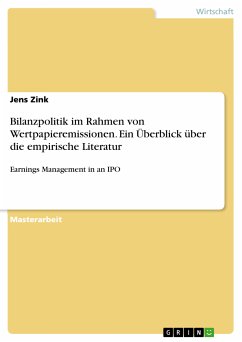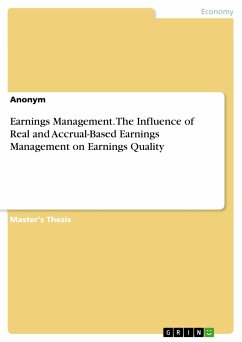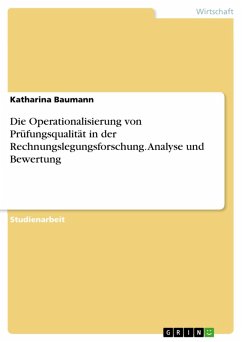Seminar paper from the year 2017 in the subject Business economics - Accounting and Taxes, grade: 1,3, , language: English, abstract: This paper studies the relation between audit and earnings quality. It examines whether firms audited by a Big 4 member engage in higher earnings management activities as proxied by the magnitude of discretionary and absolute accruals, as well as an income smoothing measure. The author predicts that large auditors have higher competencies and incentives to deliver a higher quality audit. Therefore, their clients are expected to reveal less sophisticated earnings management and thus higher earnings quality. The results do not support this relation. Since standardsetters have been concerned about managers' use of discretion to manage earnings in their financial reports, an increasing amount of empirical research was conducted to address this issue, additionally to regulation. While independent auditors (aim to) assure that these statements are in accordance with legal compliance, the actual audit quality can be grasped as the contingency that the auditor exposes and discloses an anomaly in their clients' financial reports. Whereas numerous audit scandals threaten the trustworthiness of well-known large auditors, there is various research revealing that Big N audited firms are supposed to disclose financial reports of higher quality. Supplementing misguiding accrual accounting practices in this regard, this study also addresses another proxy for earnings management: income smoothing. Burgstahler and Dichev (1997) explain corporate income smoothing with the fact that managers avoid revealing earning decreases and losses to diminish costs arising from transactions with stakeholders. Similarly, Degeorge, Patel and Zeckhauser (1999) show that managers smooth earnings to meet analysts' forecasts. On the other hand there are various contrary studies. DeFond and Jimbalvo (1993) found that auditor-client disagreements resulting from earnings management, are more present in Big 4 audited firms. They explain this with the properties of the "common" Big 4 clients. For the reason of the ambiguous results, it is interesting to study the effects and compare them with prior evidence to answer the question whether Big 4 auditors deliver "higher" quality in terms of a "better" financial reporting. The terms are operationalized using a dis-cretionary accruals and income smoothing measure and analyzed for (non-)Big 4 audited UK-firms in the period 2005-2011.
Dieser Download kann aus rechtlichen Gründen nur mit Rechnungsadresse in A, B, BG, CY, CZ, D, DK, EW, E, FIN, F, GR, HR, H, IRL, I, LT, L, LR, M, NL, PL, P, R, S, SLO, SK ausgeliefert werden.

